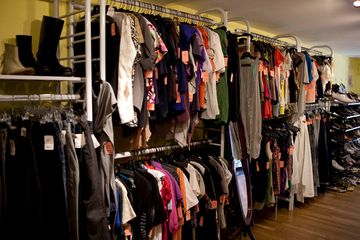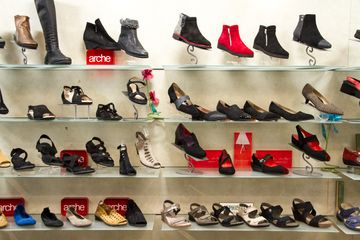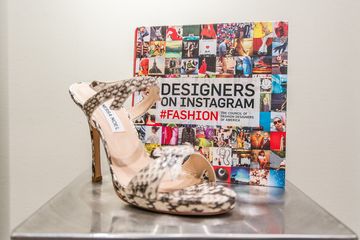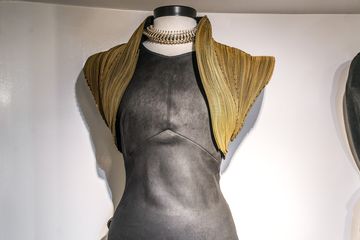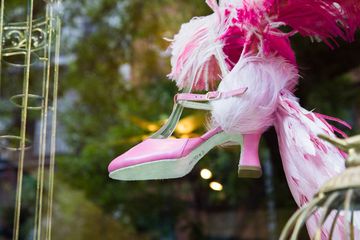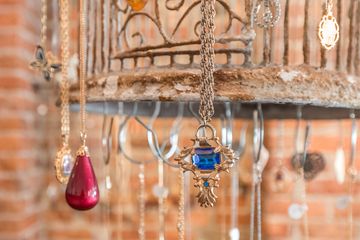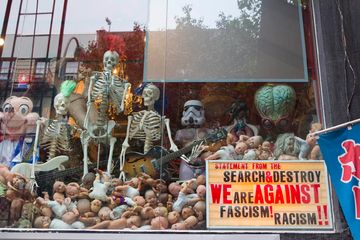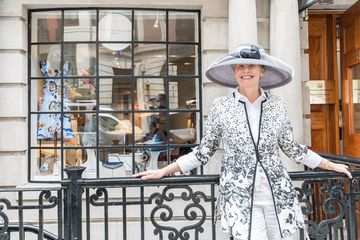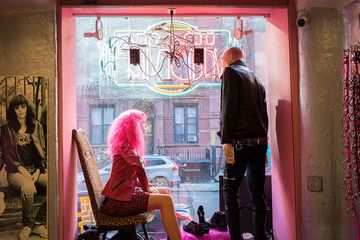"A shoe is not an accessory, but a necessity, " Vanessa Noel declared as I sat with the woman who has been a top shoe designer since the 1980s. I went on to learn that making a shoe requires equal parts design and engineering, because the success of a shoe depends on balance and form. As Vanessa explained, anyone can decorate a shoe, but to actually form a piece of footwear to fit a woman's feet is a truly difficult task. Vanessa is very conscious of comfort – "I can't stand when I see women who are unable to walk because of their shoes, " she told me. "It is a sign that their shoes are not well made. " Vanessa, who claims to often walk around the city in six inch heels, makes shoes that will not cause women to need to call a cab after two blocks. She is very proud of the fact that just the other day she "put a congresswoman back in high heels. " Vanessa describes her shoes as "comfy, sexy, elegant, and beautiful. " She designs the entire line herself, and has everything handmade in Italy. She loves discovering and playing with exotic materials. I was able to get a glimpse of her stretch alligator skin that she created herself, and which has become her trademark. It had twenty-four carat gold embedded in the high-quality Louisiana skin, allowing the brilliant shine and color to permeate through the entire material. Vanessa continued to walk me through her workshop as she shared a prototype of translucent alligator, which was streaked neon pink. While gazing at her treasure trove of shoes, she told me about an extraordinary order that she once produced: over-the-knee flat stretch orange python boots. Although customer service is a key element of Vanessa's business model, she is not solely concerned with the needs of her clients; Vanessa also tries to look out for the people producing her shoes. When she became aware that some of the ancient Italian tannery families were developing cancer because of the chromium used in their processing techniques, she commenced researching better methods. She then discussed her interest in being chemical-free more generally - and that passion drove her to open the ecologically friendly Hotel Green in Nantucket. Vanessa's most recent addition to the shop is a new line of handbags. She had been making them for herself for years, but was encouraged to design some for her customers after being spotted with one on a fashion runway. They come in a wide variety of bright, fun colors and are made with high-quality Italian leather, similar to her shoes. At this moment, while sitting and chatting, in strolled Emma, Vanessa's mother, the delightful inspiration behind some of the bags. I watched as Emma headed straight for these new additions and joked about taking one, before being told that the design was actually called the "Emma bag. " Smiling, her daughter said, "you are welcome to take one. " After looking very pleased, Emma turned to me and began sharing stories from her daughter's childhood, as Vanessa looked on with an amused grimace. Although difficult to believe, Emma said that Vanessa was "a monster" as a child, who once, at the age of four, with her little bit of cash, convinced a Greek herder to allow her to ride his donkey halfway up the mountain. I continued to be fascinated as Emma described their visit to the Emilio Pucci palace with her sister and Emma, and had dresses made for all three of them. Vanessa’s latest creative endeavor is the Noel Shoe Museum, which will be the first of its kind in the United States. It will display shoes from around the world, spanning several centuries, with an aim of showcasing their creativity and the history of their design and manufacturing. Nevertheless, Vanessa’s greatest mission remains to repair women’s relationships with luxury footwear. In her words, “I try to make glamorous shoes that essentially become an extension of a woman’s leg. ”
